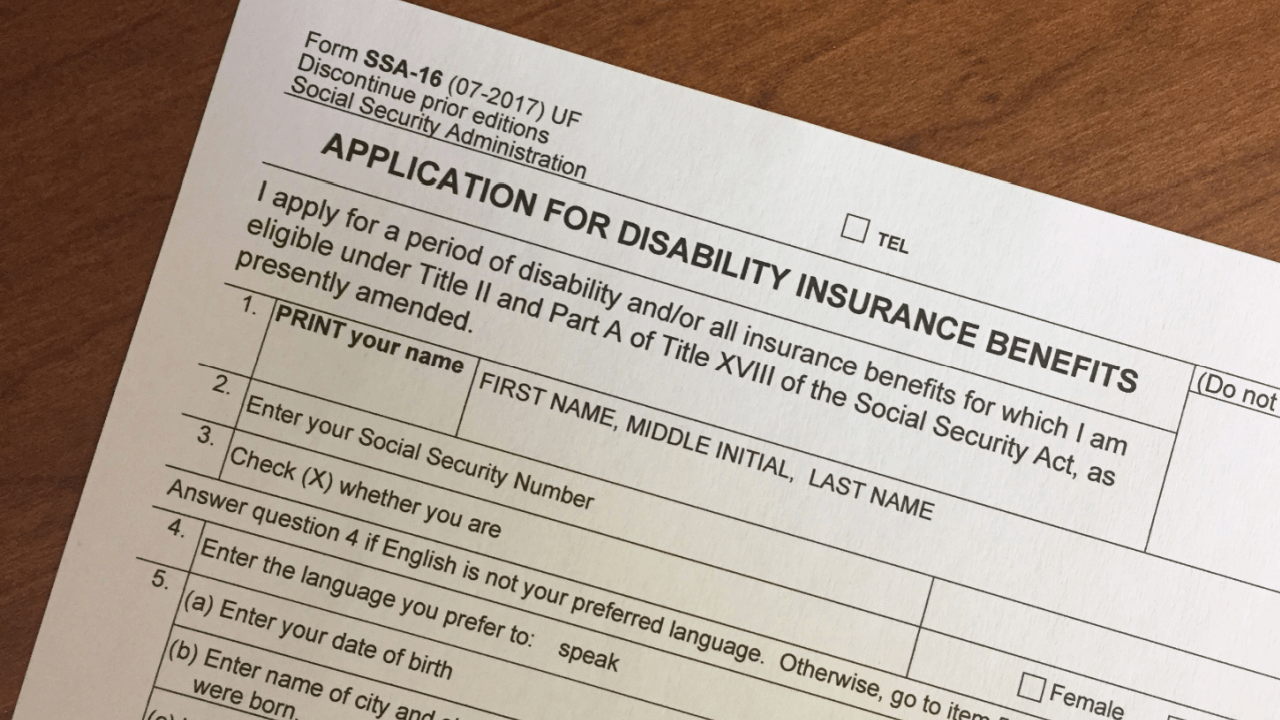
Critical Mistakes to Avoid: What Not to Say When Applying for SSDI?
Communication Risk Alert: What Not to Say When Applying for SSDI
When you’re wondering what not to say when applying for SSDI, understanding the impact of your words is crucial. Social Security Disability Insurance applications undergo rigorous review processes where every statement matters. Your choice of words can significantly influence how your information is reviewed during the application process.
Applying for Social Security Disability Insurance requires careful attention to how you present your case. Medical professionals, disability examiners, and administrative law judges evaluate not just your medical records but also your verbal and written communications. Understanding what phrases and statements to avoid may affect how smoothly the application and review process proceeds.
Verbal Pitfall Warning: Dangerous Phrases That Hurt Your SSDI Claim
Several specific statements may negatively affect how a disability claim is evaluated. Never say “I feel fine today” during medical appointments or evaluations, as this suggests your condition isn’t consistently disabling. Avoid phrases like “I can work part-time” or “Some days are better than others” without proper context, as these statements suggest you maintain work capacity.
When discussing your limitations, never minimize your symptoms by saying “It’s not that bad” or “I can manage somehow.” These downplaying statements may conflict with how disability severity is evaluated. Similarly, avoid saying “I don’t take medication because I don’t need it” or “I stopped treatment because I felt better,” as these suggest your condition isn’t severe enough to warrant benefits.
Social media posts present another danger zone. Never post content showing physical activities that contradict your claimed limitations. Statements like ‘Having a great day’ or photos of activities inconsistent with your stated limitations may be considered during application review.
Exam Talk Tips: Medical Appointment Communication Mistakes to Avoid
During medical evaluations, avoid saying “I don’t know” repeatedly when asked about your symptoms or limitations. Instead, provide specific details about your pain levels, functional limitations, and daily struggles. Don’t say “The pain comes and goes” without explaining how severe it is during bad periods and how frequently these episodes occur.
Employment History Insight: What Not to Say About Past Jobs
When discussing your work history, never say “I quit because I was lazy” or “I didn’t like my job.” These statements suggest voluntary departure rather than disability-related inability to work. Avoid saying “I could probably do my old job if I tried harder” or “Maybe I just need to push through the pain.”
Don’t minimize your past job responsibilities by saying “My job wasn’t that difficult” or “Anyone could do what I did.” These statements undermine your argument that your current condition prevents you from performing substantial gainful activity. Instead, focus on specific job demands that your condition now makes impossible.
Income Talk Traps: Financial Statements That Can Derail SSDI Claims
Never say “I don’t really need the money” or “This is just extra income.” These statements suggest SSDI isn’t medically necessary. Avoid discussing unreported income or saying “I sometimes help friends with small jobs for cash,” as this could indicate unreported work activity.
Approval Language Guide: Clear Communication During the SSDI
Understanding what not to say when applying for SSDI is equally important as knowing what you should communicate. Always be honest about your limitations while providing specific, detailed descriptions of how your condition affects daily activities. Focus on your worst days rather than your best ones when describing symptoms.
Use medical terminology when possible and reference specific doctor recommendations. Say “My physician restricts me from lifting more than 10 pounds” rather than “I can’t lift heavy things.” Quantify your limitations whenever possible with specific timeframes, distances, and weights.
Claim Protection Tips: Communicate Strategically During the SSDI Process
SSDI applications involve consistent communication throughout the entire process. Work with qualified professionals who understand what not to say when applying for SSDI and can guide your responses during evaluations and hearings. Remember that consistency across all statements, medical records, and documentation is an important part of the review process.
Expert Help Reminder: Guidance for the SSDI Application Process
Navigating the Social Security Disability Insurance application process can be overwhelming and confusing. Incomplete or unclear information may affect how an application is evaluated.
Why risk going it alone? Professional disability advocates know the ins and outs of the SSDI system, including:
- What specific language strengthens your application
- Which common phrases can actually hurt your case
- How to present medical evidence effectively
- The documentation that matters most to reviewers
Avoiding preventable mistakes can be helpful. The disability attorneys at SocialSecurityDisability.com assist applicants with navigating the SSDI application and review process.
If you want help understanding the SSDI application process, you may wish to contact the legal professionals at SocialSecurityDisability.com for guidance on SSDI requirements and procedures.
Frequently Asked Questions
1. What happens if I accidentally say something harmful during my SSDI evaluation?
One mistake typically won’t destroy your claim, but consistent problematic statements can damage your credibility. Focus on providing accurate, detailed information moving forward and consider working with a disability attorney to address any concerns.
2. Can Social Security use my social media posts against my SSDI application?
Yes, Social Security investigators can review public social media content for evidence contradicting your claimed limitations. Keep social media private and avoid posting content that could be misinterpreted.
3. Should I mention good days when applying for SSDI?
You should be honest about symptom fluctuation, but focus on explaining how your worst days prevent consistent work performance. Emphasize that even good days don’t restore your ability to maintain substantial gainful employment.
4. What should I do if a doctor asks leading questions during my SSDI evaluation?
Answer honestly but specifically. If asked “You can walk, right?” respond with details like “I can walk about 50 feet before severe pain forces me to rest for 10-15 minutes.”
5. Can phone conversations with Social Security affect my SSDI claim?
Yes, phone conversations are documented and can impact your claim. Always speak carefully, provide specific details about limitations, and avoid downplaying your symptoms during any Social Security communication.
Key Takeaways
- Never minimize your symptoms or suggest you’re having “good days” without proper context during SSDI evaluations.
- Avoid statements that suggest you can work part-time or return to previous employment with minimal accommodation.
- Be specific about limitations using medical terminology and quantifiable restrictions rather than vague descriptions.
- Keep social media private and avoid posting content that contradicts your claimed disabilities or functional limitations.
- Work with qualified disability professionals who understand what not to say when applying for SSDI to maximize approval chances.


